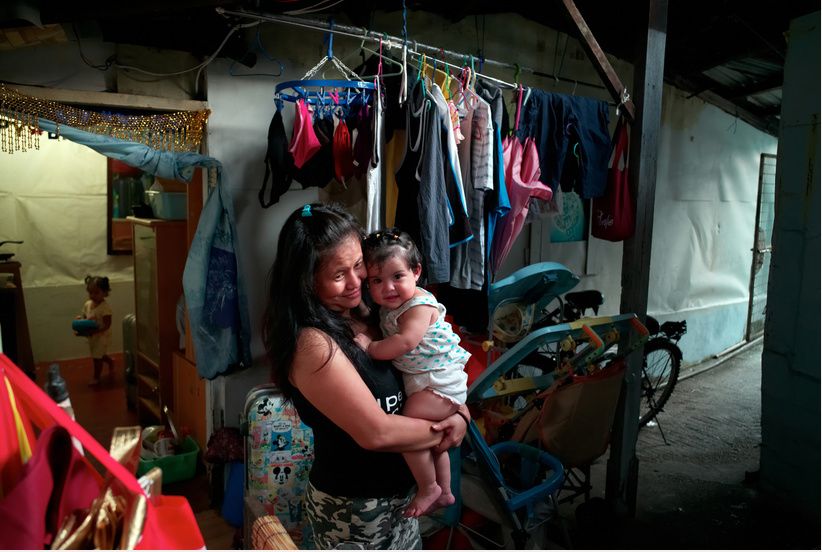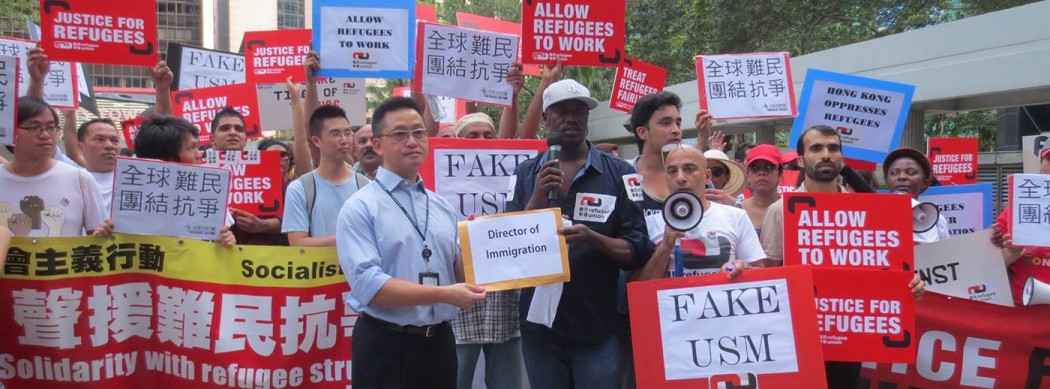By Michael Leung
At the press conference following the 2016 Policy Address, Chief Executive Leung Chun Ying said that it may be possible for Hong Kong to denounce the United Nations Convention on Torture, and Other Cruel, Inhuman or Degrading Treatment or Punishment (UNCAT) to block “fake” refugees. While the absurdity of Leung’s suggestions no longer shock Hong Kongers, it provides an opportunity to evaluate whether Hong Kong has indeed a “fake” refugee problem.

The Alliance Demanding Repatriation of Refugees, led by Dominic Lee Tsz-King, the chairman of the Liberal Party’s Youth Committee and Sham Shui Po district councillor, have been staging a fight against Hong Kong’s refugees for a long time. Their arguments can be summarized succinctly — “fake” refugees from Southeast Asia rush into Hong Kong in order to take black labour jobs and waste taxpayers’ money by applying for living subsidies and legal aid.
In an open letter delivered to Secretary for Security Lai Tung Kwok during a protest against refugees in April 2015, the Alliance used Hong Kong’s refugee substantiation rate of 0.5% as the evidence that Hong Kong’s refugees are “fake”.
Hong Kong’s low substantiation rate is not reflective of unworthy or “fake” refugees, but instead a product of the Immigration Department’s unreasonably high standards. For example, Justice Centre Hong Kong, a refugee rights advocacy group, noted several rejected claims grounded in the government’s conclusion that that there is no risks in the country of origins, even though the rejected claimants are from countries flagged by the United Nations High Commissioner for Refugees (UNHCR) as countries of concern due to widespread conflicts and persecutions.

Furthermore, Hong Kong lags behind other countries with respect to the provision of adequate legal representation at the claim application stage. Traumatized refugees are often left without proper mental health care. Cultural and language barriers subsist within the system. All these structural factors lead to a claim before the Immigration Department that is substandard to the actual worthiness of the refugee.
Even the most worthy claimants in Hong Kong are set up to fail. Using a low substantiation rate as evidence of “fake” refugees is irrational and misleading when the government rejects almost everybody, no matter the circumstances.
A reasonable argument against accepting refugees is an unfavourable job market in the city, leading to the new arrivals becoming burdensome upon society. This is simply not the case in Hong Kong. In his 2016 Policy Address, Leung noted a labour shortage in the construction industry and the need to import 10,000 to 15,000 workers into Hong Kong. Why not exhibit humanitarianism while solving the labour shortage in Hong Kong?

While the government spends over HK$6 billion annually to disburse living and food stipends to approximately 10,000 refugees claimants in the city, it is important to put this into the proper context as each claimant only receives HK$3,200 monthly. To reduce this cash outflow, the government can entertain the idea of granting refugees awaiting re-settlement the right to work. Hong Kong’s unemployment rate is not considered high. For survival, many of the city’s refugees are already forced into the black labour market and it is just a matter of turning these jobs into real ones. It is sensible from both a humanitarian and budgetary perspective to grant refugees the right to work. The Liberal Party has always insisted that a job is the ultimate social security. Let’s see if they are willing to put their money where their mouth is.
The message that the Liberal Party’s branch organization attempts to make, which is being resonated by pro-establishment media, cannot be substantiated with facts or logic. This is what happens when one formulates its policies towards refugees on the grounds of bigotry.
